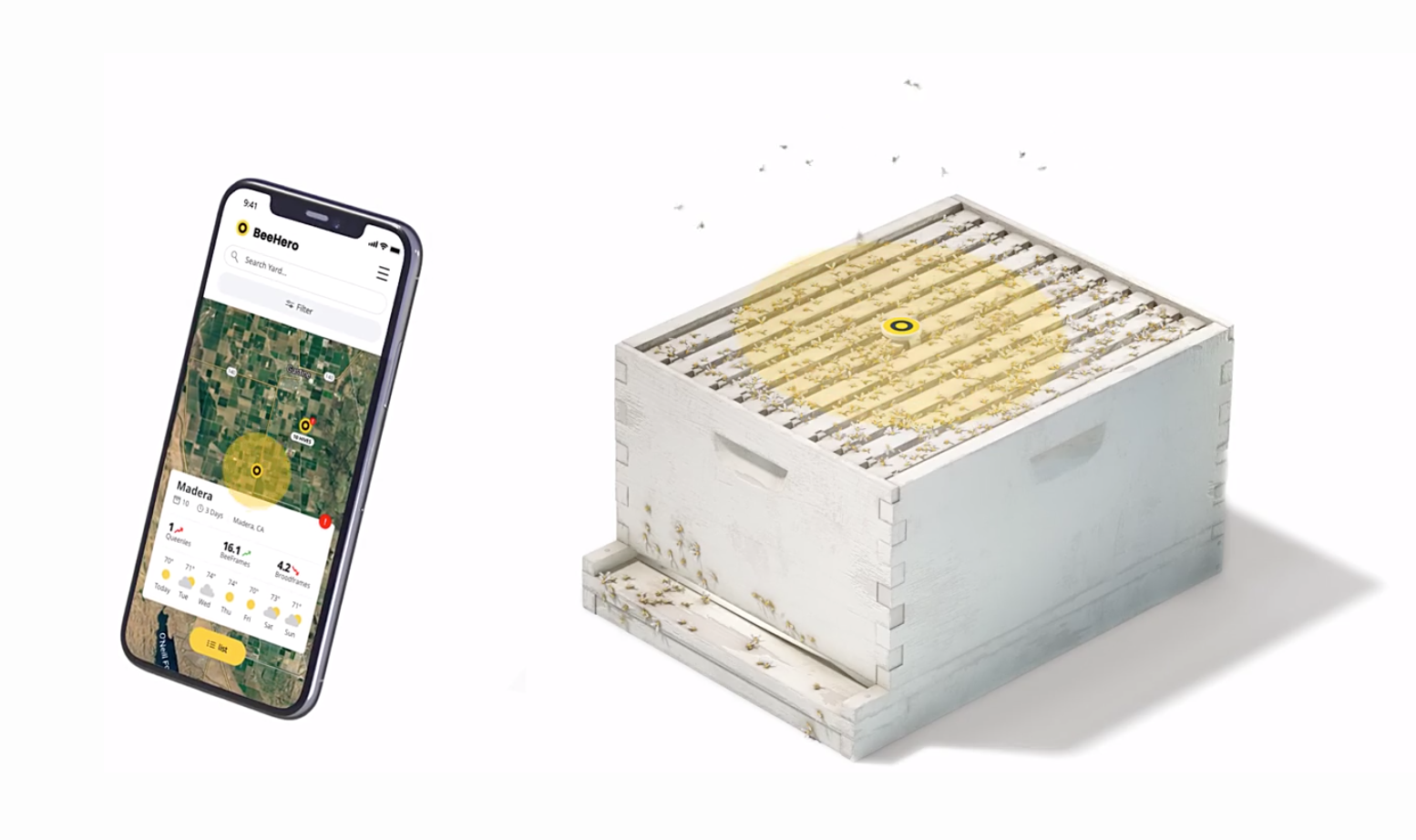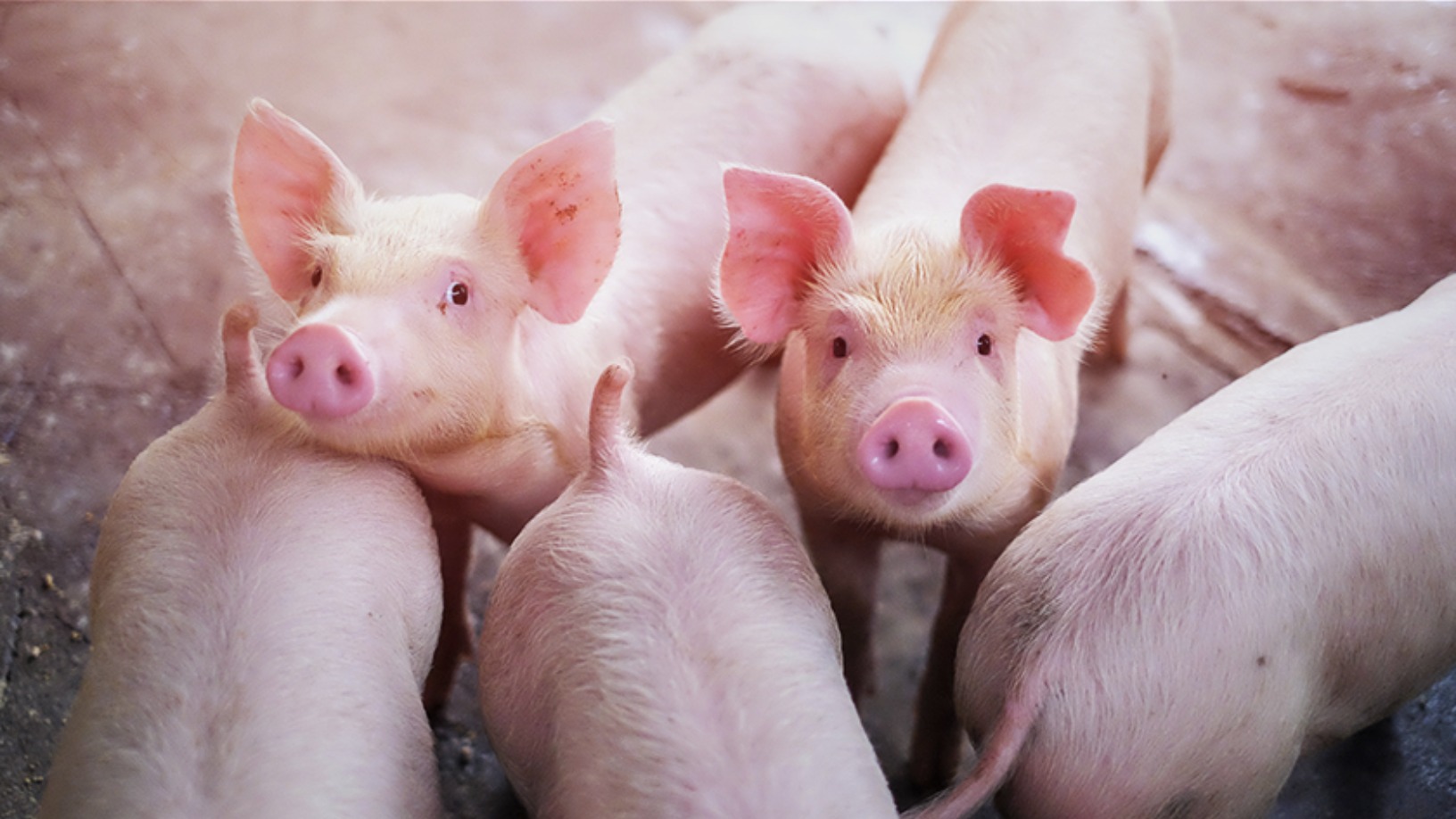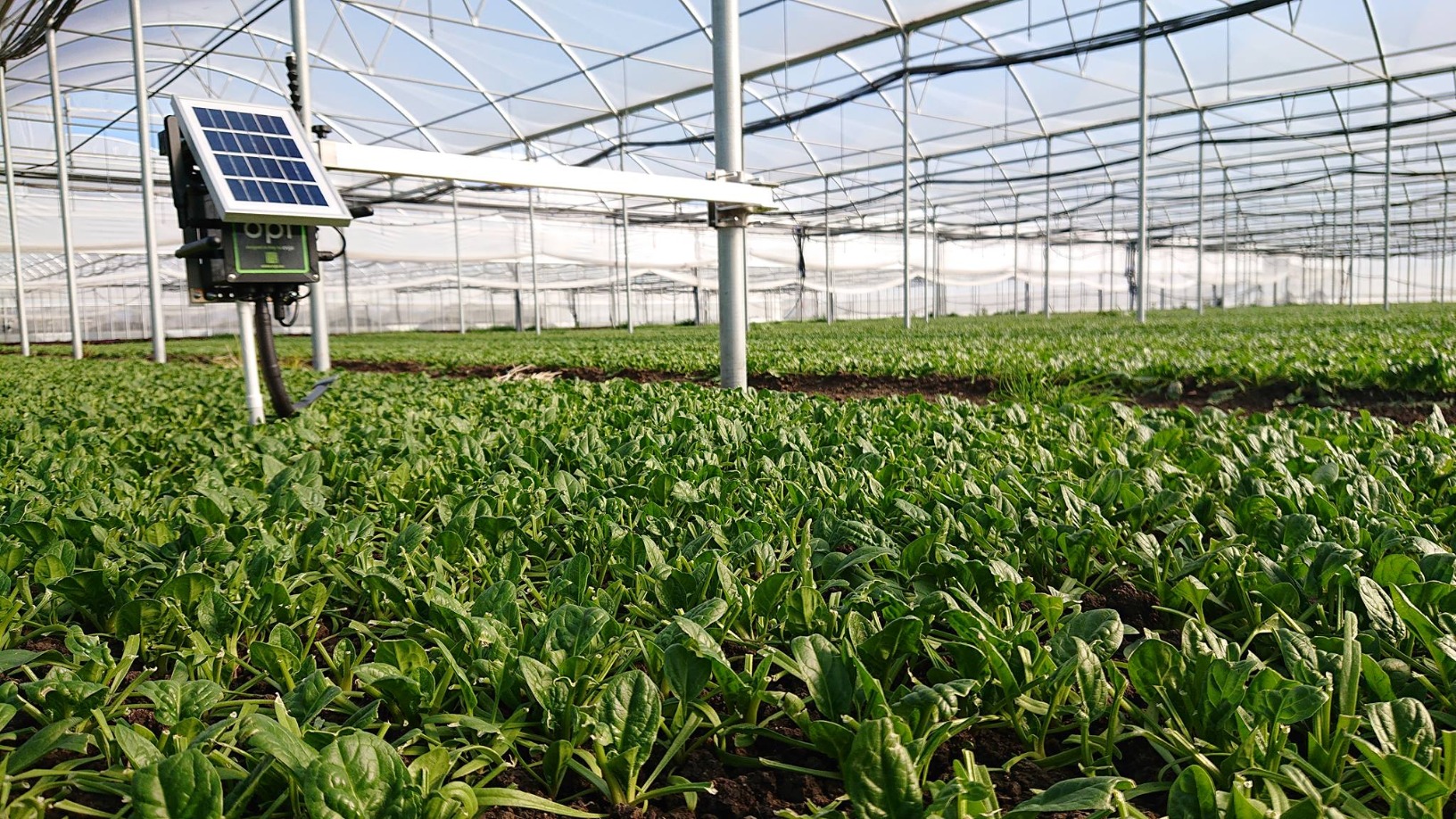Since a problem called Colony Collapse Disorder – when the majority of worker honeybees in a colony that leave to look for food don’t return – was identified in 2006, nearly 30% of bee colonies have died every year. The consequences can be dire as about 75% of agricultural crop species rely on pollination, mostly by bees, to reproduce.
California-based BeeHero helps save bees with modern IoT and AI technologies. Its IoT sensor is a small circular device that sits on the beehive frame to monitor temperature, humidity, sound and mite activity in real time. BeeHero’s algorithms use the data to predict colony disorders and alert beekeepers for immediate interventions via a smartphone app.
The startup, whose R&D unit is in Israel, has made the US its first and primary market, where it works with beekeepers to pollinate almonds. “Eighty percent of the world’s almonds are grown in California, so you have a small area where you can have a big impact,” said Omer Davidi, CEO and co-founder of BeeHero.
In October 2021, BeeHero announced a $15m Series A funding round from VCs including ADM Capital, UpWest, Rabo Food and Agri Innovation Fund, iAngels, Firstime, J-Ventures, Entrée Capital, Good Company, STB Holdings, the Arison Group and Gaingels. It has also received $4m in total grants from the European Commission, the BIRD Foundation and the Israel Innovation Authority.
BeeHero says it is currently the fourth-largest pollination provider in the US and aims to become number one with 100,000 managed hives by end of 2021. The startup has raised $24m since its launch in 2017.
Largest bee database
BeeHero’s sensors and diagnostics help beekeepers reduce the mortality rate of bees. The data generated from the sensors are analyzed by its machine-learning algorithms, giving beekeepers information on hive health. The system will raise a flag if a queen is under stress or a colony shows signs of collapse.
To provide actionable insights to beekeepers, BeeHero needs massive amounts of data to train its algorithms – data unavailable when it was launched four years ago. Starting from scratch, the company worked with commercial beekeepers in Israel and the US to collect data. Davidi says BeeHero now has the world’s largest database of bee and pollination data.

Measuring colony flight activity helps beekeepers know the foraging efficacy of honey bees, but it is a challenging task. So, BeeHero developed an optoelectronic sensor that provides accurate real-time monitoring of the actual number of foraging trips a colony makes during a day. It also uses pollen traps and computer vision to check the amount of pollen that bees bring back to the hive.
The benefits for beekeepers, bees and growers are immediate: a 25–30% decrease in mortality rates in its managed hives and up to 30% increase in crop yields. Remote monitoring of beehives and less field inspection trips also help cut down on beekeepers’ operating costs.
BeeHero works with commercial beekeepers who have pollination contracts with growers. “We give this [sensor] to the beekeepers for free, and we provide quality assurance. Then we take a cut from the pollination contracts,” said Itai Kanot, COO and co-founder of BeeHero.
The company is also working with the World Bee Project and Japan’s Ministry of Culture on bee health and its relationship with local environments.
Trial and error
BeeHero’s journey began when Davidi, a data scientist and serial entrepreneur, met Kanot, a second-generation commercial beekeeper whose family owns the largest bee farm in Israel. “I had a lot of questions on why bees are dying. No one's trying to solve this problem," Davidi said. "My tech background and Itai’s expertise in commercial beekeeping helped identify the needs [of beekeepers].
In 2017, they formed BeeHero during an entrepreneurial program at IDC Herzliya, a private university in Israel, with Michal Roizman, a product manager, and Yuval Regev, a technical specialist in hardware and data analytics.
Their journey wasn’t easy at first, as it was difficult to deploy IoT devices in beehives. “Being inside that environment is quite challenging. We’ve faced bees eating stuff we’ve put there; we’ve seen things that bees considered as a threat and covered it [with propolis] but we couldn’t sense anymore. There are a lot of aspects that need to be addressed when introducing an external body in this organism,” Davidi said.
The company started with wires embedded with microphones and sensors and then a big case with sensors inside. They were either hard to commercialize or affected the activity of bees. After many rounds of trial and error, BeeHero settled on the current version with sensors housed inside casings 3D printed in nylon, even though 3D printing costs more than traditional manufacturing.
“It’s never the final product. There are a lot of changes that need to be made all the time. And if you look at it from the cost of the unit, moulding is probably cheaper, but the cost of changing the pattern all the time is quite expensive,” Davidi said.
The startup is making progress in other areas besides sensors. With the fresh funds from its Series A round, BeeHero plans to expand to pollinating berries, avocados and apples, and later, to sunflower and soybeans. It is also considering expanding into other markets in Australia and Europe.












